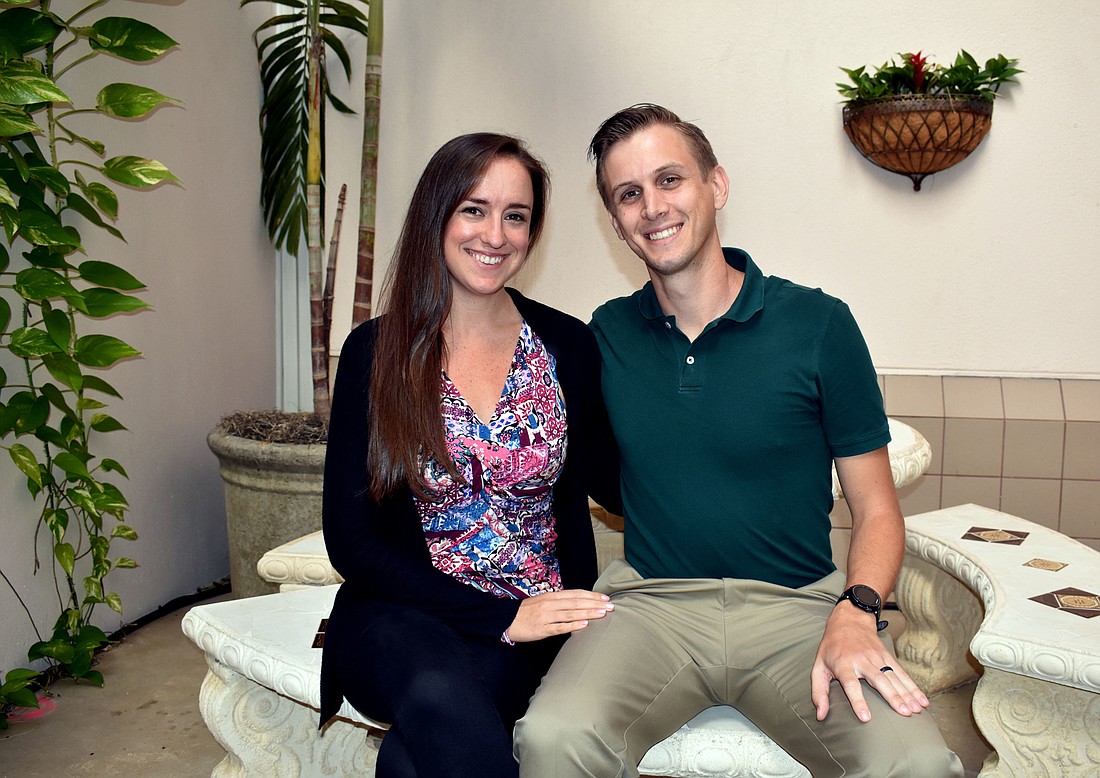- July 11, 2025
-
-
Loading

Loading

When “Wonder Woman” came out in 2017, people all over the world were inspired by Gal Gadot’s powerful portrayal of the Amazonian warrior.
Sarasota’s Jessica Wilson, however, was inspired to lose weight.
“It sounds silly, but you see these women of all ages, and they look fantastic,” she said. “I was like, ‘Wow, they look so good. I want to look that good too when I’m that age. We’ve got to turn some things around here.’”
So after hearing about intermittent fasting from a friend, Wilson decided to give it a try, but first she enlisted a partner — her now-husband, Barry Ripley.
Intermittent fasting, or switching between periods of eating and fasting, is usually done in one of three ways — alternate day fasting, modified fasting and restricted fasting — said Doctors Hospital registered dietician Abi Utech.
Alternate day fasting is when a person eats one day and not at all the next. Those who participate in modified fasting eat normally one day and small amounts the next. Restricted fasting, the most popular type, requires a person to fast a certain number of hours through the day.
Wilson and Ripley participate in restricted fasting, eating eight hours a day and fasting for 16. Since 2017, the couple has lost a combined total of 100 pounds.
“What’s so great about intermittent fasting is that it’s easy to understand,” Wilson said. “You fast for 16 hours, but it’s super effective, too. You get into this fasting state where you start burning fat, which is what a lot of people need to do.”
Although the couple found fasting to be helpful in cutting down late night snacking and unnecessary eating, they also counted calories to ensure they were burning more than they consumed.
By utilizing a digital scale and the app MyFitnessPal, the couple learned what healthy portion sizes looked like and were able to see how many calories they could eat daily based off their workouts.
Utech said various benefits could be seen from intermittent fasting, such as weight loss, healthy blood sugar levels and a rested digestive system. However, if done improperly, intermittent fasting can hurt a person’s metabolism.
“The main drawback from what I’ve seen is if you are trying to force it and not listening to your hunger cues, then you might put yourself in that starvation mode when your body will just hold onto everything it can get when you do let yourself eat,” Utech said.
For those interested in intermittent fasting, Utech recommends trying it for a few weeks. If a person is not adjusting and still feeling hungry all the time, she said to switch back to three main meals to keep a healthy metabolism.
Another drawback, Utech said, is a risk that most diets have: gaining the weight back after quitting the diet.
“It’s kind of going the same way as every other fad diet that we see come out because it’s seen as this magic pill,” she said. “People think it will work for everyone, especially because it’s not telling you to cut out any certain foods.”
Ripley and Wilson, however, aren’t worried about that. They view intermittent fasting as a lifestyle change, not a diet.
“You don’t have to do it all the time,” Ripley said. “It’s not like the ketogenic diet, where if you have one bad day, you mess up your diet for a long time. You can take a weekend off and jump back in when you start work on Monday.”
The couple said they’ve heard from various reasons why others haven’t tried it: the feeling of hunger, the lack of their favorite meal or missing out on a morning cup of coffee. However, Wilson said with a little adjustment, those things can be avoided.
“It takes about a week or two to get used to, and you sleep through most of the fasting period,” she said. “If you really enjoy breakfast foods, you can have them at noon when the fast is over.”
Plus, Ripley said that because coffee is zero calories, fasters can have it anytime throughout the fasting period.
The couple said those looking to try intermittent fasting should plan out their meals and make sure they’re eating healthy portions. Utech said a good way to stay on course is by packing food when going to work or out for the day.
For those who need extra encouragement, Wilson found the app FastHabit helpful because it sets a timer for the fasting period and sends alerts and reminders when the period is over.
“People will often say, ‘Oh, I’ll just starve myself; I can’t do that,’” Wilson said. “I promise, you can. It’s not that hard.”